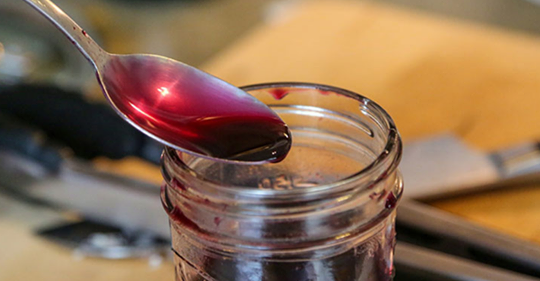
Good on the Brits!

Tom's Blog on Life and Livingness

Good on the Brits!

Moving stuff for dog lovers…
https://www.flixxy.com/the-silhouettes-americas-got-talent-the-champions-2020.htm

Why “needless” deaths from this threatening virus? Because doctors, health authorities, hospital administrators and politicians have not read history. Not even the Chinese!
This week several members of the Orthomolecular Medicine News Service (OMNS) were asked, “How would you treat the coronavirus?” Here are opinions of experts who study the potential of nutrients to fight disease.
Dr. Andrew W. Saul, an international expert on vitamin therapy, says, “The coronavirus can be dramatically slowed or stopped completely with the immediate widespread use of high doses of vitamin C. Bowel tolerance levels of C taken in divided doses throughout the day, is a clinically proven antiviral, without equal.”
https://www.mpnnow.com/news/20200128/dr-gifford-jones-people-are-dying-needlessly-of-coronavirus

Pretty amazing the level of detail to which you can scroll down. http://sh-meet.bigpixel.cn/

Elderberry is a famous flu remedy from traditional medicine. Its well known medical uses go back to the time of the Romans. Elderberry was an official medicine in the U.S. Pharmacopoeia from 1820 until 1890, when it was dropped with most other herbal remedies.
https://anyavien.com/no-flu-shots-use-elderberry-syrup-99-effective-for-h5n1

Importantly, sepsis has been identified as a major contributor in influenza deaths. According to researchers, “Severe sepsis is traditionally associated with bacterial diseases … However, viruses are becoming a growing cause of severe sepsis worldwide.”
As noted in the video above, some sepsis symptoms also resemble those of influenza, which can have tragic consequences if you do not seek medical help in time. The video offers guidelines on how to tell the difference between the two.
Sepsis, without doubt, requires immediate medical attention, whereas most people will successfully recover from flu with a few days to a week of bedrest and fluids. Just how influenza can lead to sepsis is a somewhat complex affair.
https://articles.mercola.com/sites/articles/archive/2020/01/29/sepsis-death-rate.aspx

Get Sayer Ji’s powerful, 20-page report, 15 Natural Strategies to Regenerate Your Body and Mind, and learn to support your body’s natural regenerative abilities for peak health and well-being… at all of life’s stages!
Tom: Sayer mentions 9 ingestible regenerative substances of which 7 are in my top bars and powders.

In Taos, a community of ‘voluntary anarchists’ is taking off-the-grid living to the next level
Just a few miles from where New Mexico’s Route 64 crosses the Rio Grande, a collection of alien looking buildings stand out in the otherwise desolate landscape. These houses—79 in total—are built partially into their natural surroundings, each with a wall of windows facing directly south.
While the houses, with their rounded corners and colorful walls made of cans and bottles, may look more like spaceships than human dwellings, the opposite is true: The buildings are even called “earthships.” Located just outside of Taos, this community—known as the Greater World Earthship Community—provides full-time housing to at least 130 people. Under the name Earthship Biotecture, it also hosts an academy in partnership with Western Colorado University, an internship program, and a visitor center open to the public.
Earthship Biotecture is almost completely self-sustainable—and it wants to teach you how to live off the grid, too.
https://roadtrippers.com/magazine/earthship-biotecture-off-grid-living/

Dr. Kimberly Foster is a licensed physician in Oregon. She graduated with a Doctorate in Naturopathic Medicine from Bastyr University, one of the top universities in natural medicine in the world. She runs the Oregon Naturopathic Clinic in Eugene, Oregon.
I have known Dr. Foster for some time now, as she is a tremendous advocate for those victimized by medical kidnapping. While more and more media outlets are now starting to cover the terrible injustice of medical kidnapping, what few in the public understand is that if parents are successful in getting their children returned to them, the battle is not over.
In fact, it is just beginning.
The trauma that these families go through causes incredible stress and long-term emotional and psychological damage – both for the children as well as the parents.
Dr. Foster has experienced this first hand herself, and has not only gone through the healing process with her own family, but she has started treating other families that have experienced similar ordeals, using her training as a naturopathic physician.
Dr. Foster finally feels ready to go public with her own story, and we are publishing it in her own words.
